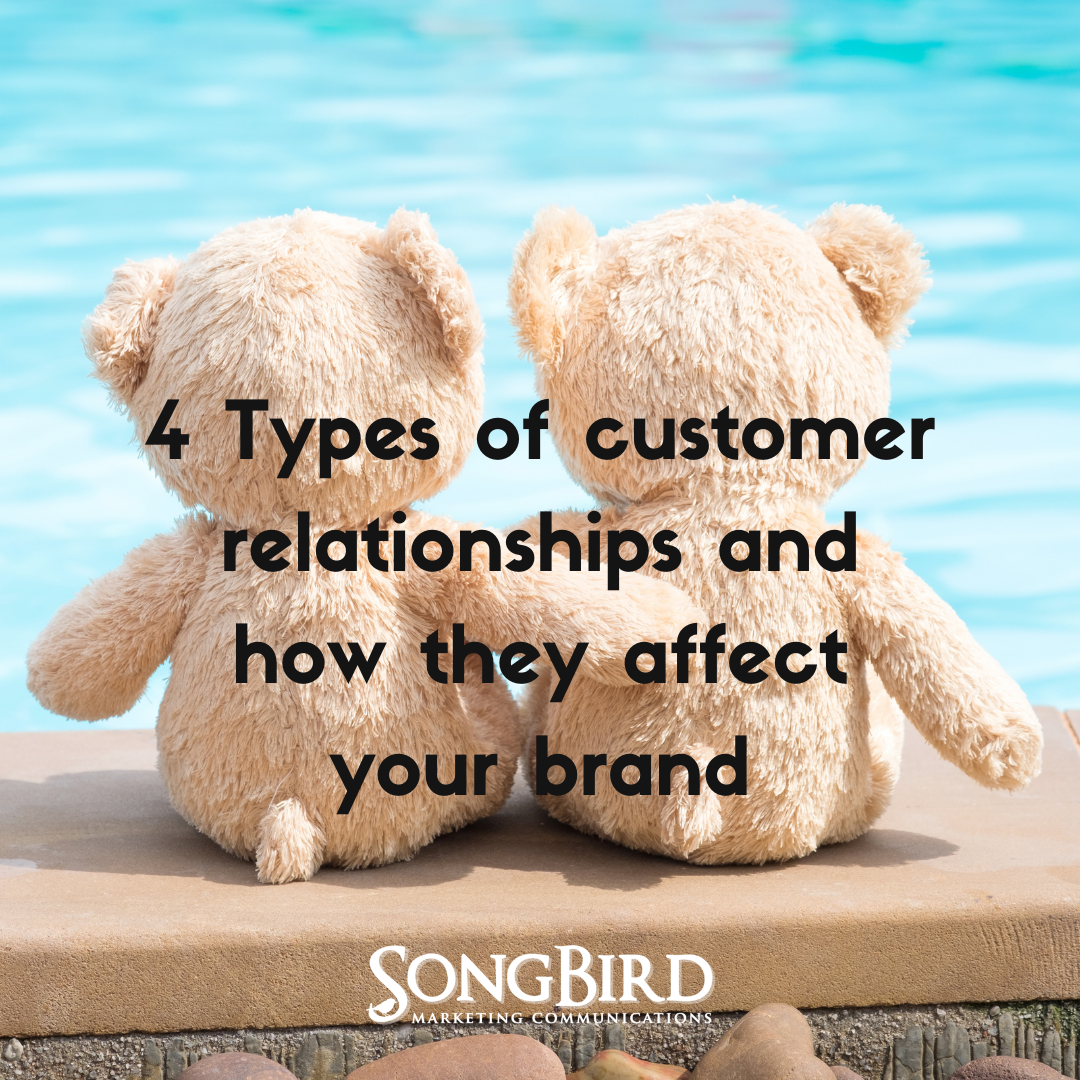4 Types of customer relationships and how they affect your brand
By Candace Huntly
Valentine’s Day… Galentine’s Day… Singles Appreciation Day… Whatever you want to call it, February thrusts relationships into the spotlight. On social media, it can seem like an endless stream of cute DIY snacks and crafts, gift ideas, and a mass, coordinated effort to use red, pink, and white in visual content. Beyond marketing tactics, it all comes down to customer relationships. Everything you do should centre around building strong relationships with your customers. The type of relationships you build will determine the long-term success of your brand (and how much fun you have building it!)
Here are a few different types of relationship you can build with your customers and the effect they will have on your efforts to build your brand.
TRANSACTIONAL CUSTOMER RELATIONSHIPS
A transactional relationship focuses solely on the exchange of money for goods/services. Every interaction a brand has with the customer begins and ends with that transaction. A brand who focuses on the transaction is likely not looking for loyalty, nor do they care about building trust and credibility. Focusing on one transaction means that you are also not looking at the long-term prospects of building your business nor are you looking to win hearts and minds with your brand story. Transactional relationships often attract customers based on price alone who are looking to fill a short-term need without building a long-term relationship with a brand. As a brand you are also less likely to focus on personalization and are only looking at short-term gains.
EMOTIONAL CUSTOMER RELATIONSHIPS
Emotional customer relationships look to tap into the way customers are feeling at any given time. From Nostalgia to sad, happy, hopeful, and everything in between, the goal is to focus on building campaigns and content that creates a conscious or subconscious connection to your brand and what you are selling. It goes deeper than wants and needs and humanizes the brand. Emotional relationships also often end in impulse-buyer behaviour. Brands who look to build relationships based on emotions are often focused on creating individual campaigns to create waves of interest. Think “going viral” for a campaign. It is also common for brands in this relationship category to look to cause marketing from an emotional connection standpoint.
COMMUNITY-BASED CUSTOMER RELATIONSHIPS
Community-based relationships are generally multi-faceted. While you are obviously looking to move customers through to purchase, the focus lies more on engaging with customers and potential customers to create a positive and lasting impression at all stages of the customer relationship. Building a community of supporters leads to high referral rates and participation in loyalty programs. The community acts as a group of brand advocates who are both loyal to the brand and generally willing to tell your brand story in their own ways. Brands who choose to focus on this type of relationship are usually focused on building trust and long-term relationships that take time to nurture and establish. The brand is more humanized, focusing on both the customers and the people behind the brand rather than just the business. Because there is a focus on community-building, your brand will not only attract people to the brand, but also bring customers together who all share the same interests, values, and ethics. There is a level of genuine care for customers and what makes them tic.
I should note that with this type of relationship, if you aren’t careful you can get caught in the superficial spiral of thinking the community growth is the most important metric. Size is a vanity metric, what you really want to focus on is engagement, reach, sentiment, etc.
VALUE-ADD CUSTOMER RELATIONSHIPS
Similar to community relationships, in this type of customer relationship there is a focus on creating brand loyalty and customer retention, trust, and credibility. Personalization and customer experience play a huge role in building this type of relationship because you are always looking to fill a need for your customer and brands will find that customers in this case will always seek the best value rather than just brand loyalty. A brand who focuses on value add will be able to build loyalty over time by providing value and an honest way of doing business, working to truly understand customer needs and to educate customers on the solutions. While engagement is important, it is a bit different than trying to rally a community around the brand itself. It is more about creating 2-way dialogue to ensure you are providing value. Keep in mind that value does not always mean lowest price!
What kind of customer relationships do you currently have? What kind of customer relationships do you wish you had? While the nature of customer relationships is often defined by things like the business model and the brand personality, it is ultimately up to you how you want to connect with your customers.
If you think your current customer relationship strategy is holding you back or you aren’t sure how to change things up to create better customer relationships, book a free 20-minute consultation with us!

